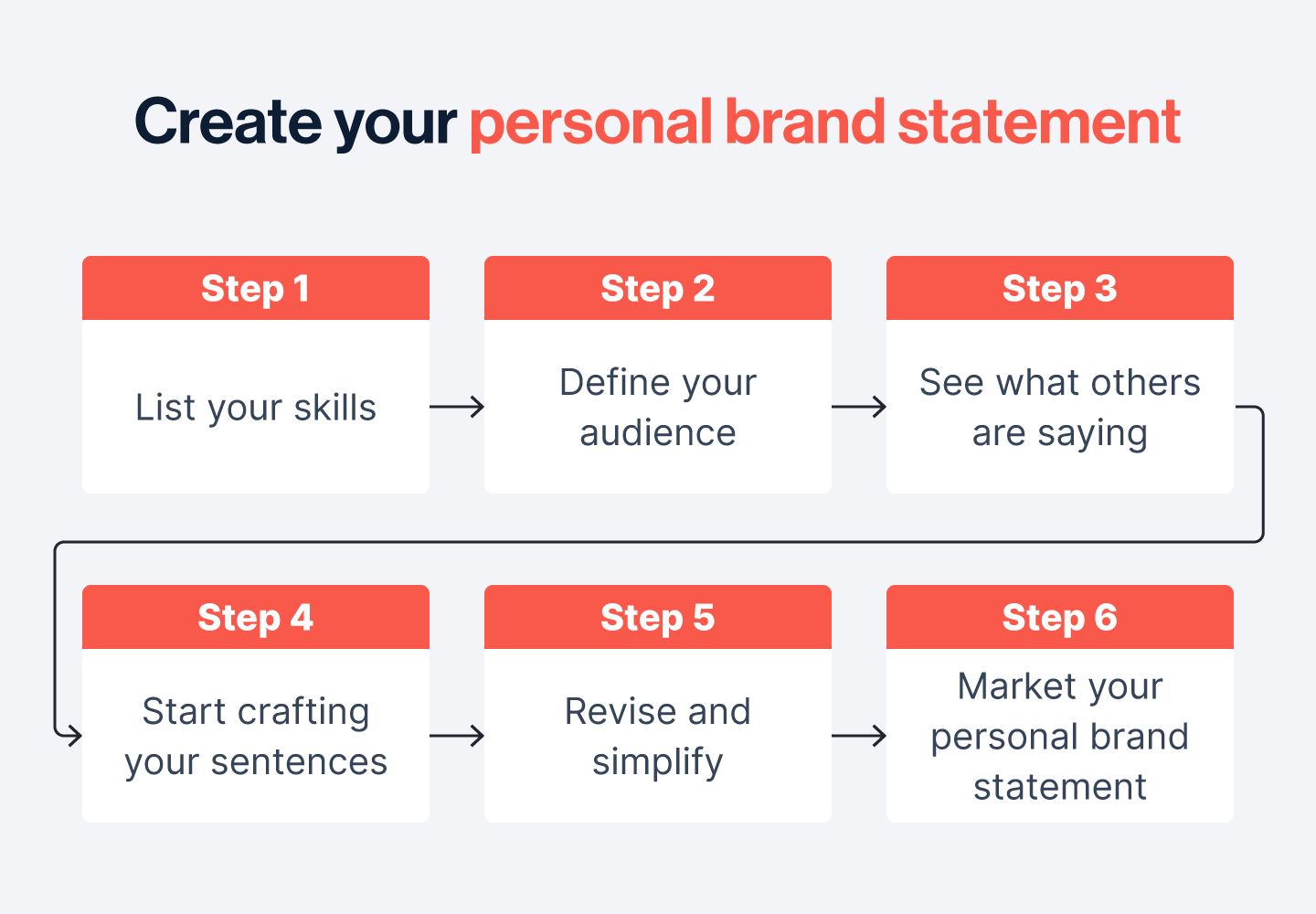A personal brand statement is a concise one to two-sentence description of your abilities, expertise, and passions that explains how you can contribute to your field. You may be able to advance professionally or discover new prospects for commercial initiatives. Here’s what you need to know about personal brand statements and how they can help you professionally.
What a Personal Brand Statement Can Do for You
Making a personal brand statement can help you in your professional career and has several advantages. Among these advantages are:
- Increasing your chances of receiving opportunities: A personal brand statement can help you connect with more individuals in your field. It gives you an opportunity to make connections with like-minded individuals who share your interests and passions.
- Total command over your brand’s image: It matters how people see you, and your personal brand statement offers you power over this perception.
- Differentiating yourself from others: Having a personal brand statement can help you differentiate yourself from competitors in your field and gain an advantage over them.
- Greater respectability in your field: Your network will inevitably expand when you create a strong personal brand statement and promote it effectively, which may help you establish yourself as a thought leader in your field.
How to Create a Personal Brand Statement
Making your own is easy once you know what a personal brand statement is and how it can help you. Here are the steps you can take to craft your personal brand statement.
- Compile a list of your strengths
Listing all of your special skills is the first step in developing your personal brand. Consider your special qualifications and what would set you apart in your industry. Look for industry-specific terms, such as products or software you are familiar with, and them to your advantage. Brain dump a bunch of skills first, then focus on choosing around three to use when creating your sentences
- Identify your target market
The direction of your personal brand statement will be determined by who you are aiming to target with it. It will be challenging for you to stand out if it’s too all-encompassing and doesn’t address a particular industry.
- Find out what people are saying
Observing what other industry experts and leaders are saying about your sector can be helpful in building your personal brand statement. This can help you to identify gaps that your experience and knowledge can fill.
- Start building your statements
Now it’s time to start developing your personal brand statement. It might take a few rounds, but that’s alright. Think about the story you want to tell and the problems you can solve.
You can also try to answer questions like:
- How do I want others to perceive me and my brand?
- What industry am I looking to serve?
- What gaps are missing from my industry that my skills and knowledge can help fill?
- Edit your sentences and simplify
Clarify your point and cut any unneeded information that doesn’t support your message. Take a little rest after finishing your initial draft, then come back with new insights. That way, you can discover adjustments that you might not have noticed otherwise. It’s also helpful to read your sentences aloud a few times to check that it sounds right and conveys the right message.
- Start promoting your personal brand
When you get your statement down, it’s time to promote yourself in the business world. Your CV, LinkedIn profile, Twitter bio, email signature, personal or business website, and any other place you believe may be useful should all include your personal brand statement. To keep it memorable to your network, make sure it remains consistent across all platforms.
5 Personal Brand Statement Tips
Now that you know what a personal brand statement is and how to create one, here are a few tips to keep in mind.
- Avoid exaggeration
Many people have a habit of exaggerating when it comes to sharing their experiences because they really want to stand out and get that job or new opportunity. Make sure you’re staying honest and transparent about your unique skills so you can build an authentic connection with your network.
- Keep things simple
Sometimes simpler is better, and in this case, it definitely is. A personal brand statement should get your point across in ideally one to two sentences.
- Leave out cliches
There are many words and skills that are cliche and don’t bring much value to your personal brand statement. Avoid these and instead focus on being unique and specific with the skills you include.
- Focus on your unique abilities
Don’t just lean on what’s buzzing in your industry. Make sure you’re including skills and words that relate to your unique abilities. Remember, a personal brand statement is all about conveying a message to your target audience. Tell a story of who you are and what you can offer.
- Revise often
As your career progresses, your personal brand statement is likely going to change. Make sure you’re coming back to it and updating it often based on your current skills and experience.
Are you ready to write your personal brand statement? Use this printable template to help you generate ideas for your personal brand statement and start attracting new opportunities.

Get 4 Free Sample Chapters of the Key To Study Book
Get access to advanced training, and a selection of free apps to train your reading speed and visual memory

